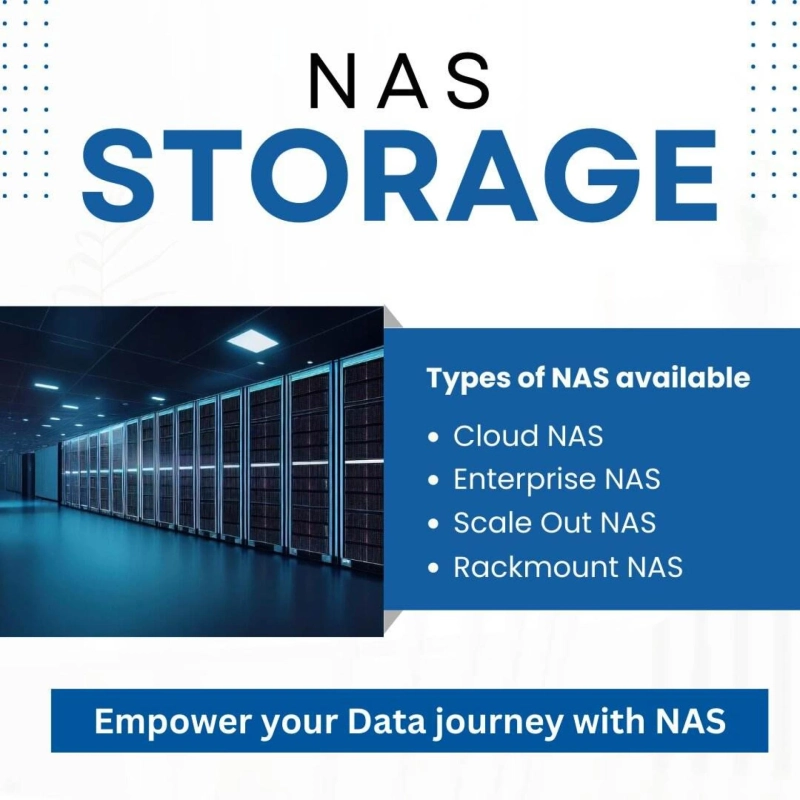Network-attached storage (NAS) has been around for a while now. But it is only in recent years that it has gained mainstream acceptance and popularity. With more and more businesses and home users investing in NAS storage solutions, it is important to understand the different types of NAS options available in the market. In this blog, we will discuss the various types of NAS and their respective applications.
Traditional NAS
This is the most common type of NAS storage and is used by small to medium businesses and home users. It is an all-in-one storage solution that connects to the network via Ethernet cable and provides shared storage to multiple devices. Traditional NAS is easy to install, use, and manage. It is ideal for data backup, file sharing, and media streaming.
Rackmount NAS
Rackmount NAS is designed for larger businesses with more significant data storage needs. It is built to be mounted in a standard server rack, which makes it easy to manage. Rackmount NAS solutions are more scalable and offer higher performance than traditional NAS. This makes it ideal for enterprises that require faster data transfer, higher levels of security, and centralized data management.
Desktop NAS
Desktop NAS is a type of traditional NAS that is designed to be used on the desk or tabletop. It is ideal for home users and small offices that have limited available space or do not require the high performance and scalability offered by rackmount NAS. Desktop NAS is easy to set up, use, and manage. It provides the same benefits as traditional NAS, including data backup, file sharing, and media streaming.
Cloud NAS
Cloud NAS is a storage solution that is hosted on the cloud. It is a service that provides users with the ability to store data on a remote server and access it from anywhere in the world. Cloud NAS is easy to set up, use, and manage. It is ideal for businesses that require remote access, have limited available space, or do not have dedicated IT resources to manage their storage solutions.
Software-defined NAS
Software-defined NAS is a storage solution that is built on top of a virtualized environment. It allows users to create an all-in-one storage solution that can be customized to meet their specific needs. Software-defined scale out NAS is highly scalable and can be configured to provide high performance and data security. It is ideal for enterprises that require customized solutions and have dedicated IT resources to manage them.
Conclusion
In conclusion, there are various types of NAS solutions available in the market for businesses and home users. Each type of NAS has its unique features, applications, and benefits. Traditional NAS and desktop NAS are ideal for home users and small offices that have limited storage needs. Rackmount NAS and software-defined NAS are designed for larger businesses that require higher performance, scalability, and data security. Cloud NAS is suitable for businesses that require remote access, have limited space, or do not have dedicated IT resources to manage their storage solutions. By understanding the different types of NAS solutions, businesses and home users can choose the best-fit solution that matches their storage requirements and budget.




